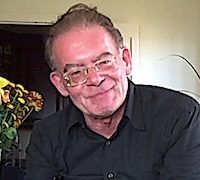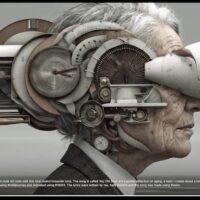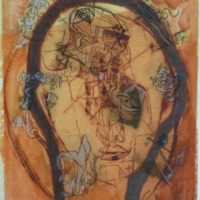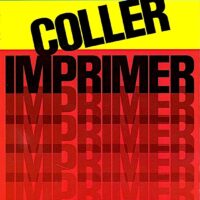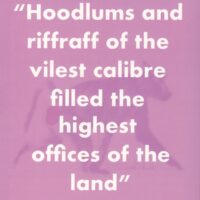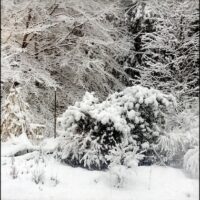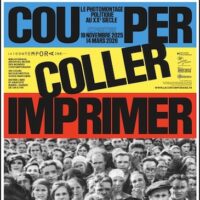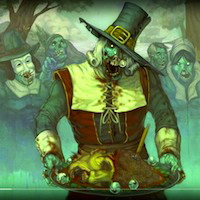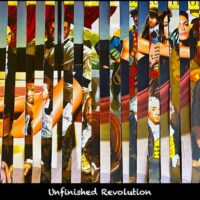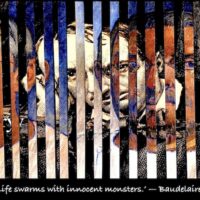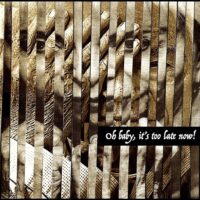Wouldn’t it be nice if Stephen Miller, Gregory Bovino, Tom Homan, Kristi Noem, J.D. Vance, bigmouth Trumpscheisse, and the rest of his ilk were frozen on one of these ice floes.
Still in Memory: Carl Weissner, So Rudely Interrupted
Tonight marks the 14th anniversary of Carl Weissner’s departure. He left us unexpectedly in the late hours of Jan. 23, 2012 or in the hours before dawn on Jan. 24. His absence has not diminished among his friends, though the date of his death has grown more distant.
About Marjorie Taylor Greene’s Apostasy . . .
This is a curiosity.
‘Don’t Forget My Old Soul’
When I saw this eye-popping video for the first time, it bowled me over. I’ve rewatched it several times and am still marveling at it. But is this work a piece of AI-slop? Is it “kind of meaningless in [its] calculated reality,” as Doug McLennan has written of the genre? Or is it more than that?
Thoughts While Not Thinking
Stealthy
quantum words
phantoms of expectation
and suicides of time
riddle us
with springs and traps.
Cut Paste Print
A History of Political Photomontage in the 20th Century
This blogpost cannot adequately display the exhaustive content and brilliant design of “Couper, Coller, Imprimer,” the richly illustrated catalogue of an extraordinary photomontage exhibition at La Contemporaine in Nantes, France (running through March 14). Even so, it is hoped that this limited attempt evokes the broad historical spirit of the exhibition while offering an edited summary of the subject by the curators, Max Bonhomme and Aline Théret, in their own words.
Quoting William S. Burroughs
A Book Designer’s Take on Political Conditions
Have a look.
Twenty Twenty-Six
Heavy
winter snows
whitened the trees.
They turned the branches
into filigrees
shivering in the wind.
Goodbye to 2025
Beneath
that commanding sky
helicopters beat the air
like motorcycles
flying by.
Cut, Paste, Print: a Graphic History of Political Montage
The exhibition opened recently at La Contemporaine (associated with Paris Nanterre University). It runs through March 14, 2026. Have a look at a few of the montages.
Krugman and Kedrosky
A Most Enlightening Conversation About AI & Its Future
As a longtime reader of Paul Krugman’s columns, I can say without hesitation that this is his best Substack conversation yet about AI and its ramifications. Thanks to Paul Kedrosky’s clarity, I understand a helluva lot more of what is going on than I did until now.
DOGE Has Evolved from Chainsaw to Ticks
Today’s headline at WIRED is a reminder of “Billboard Proposal #2,” which was posted seven months ago. And now that Elon Musk’s chainsaw has evolved, this is not so much an I-told-you-so as confirmation of his so-far inescapable assault. Let us also not forget “Billboard Proposal #1.”
A Straightup Thanksgiving — It’s a Tradition
Our Thanksgiving team of William S. Burroughs and Norman O. Mustill has been a happy pairing since 2012. It still is. So here they are again, sweetened by Heathcote Williams’s words in a narration-cum-montage by Alan Cox. It’s all so delish.
Fragments of an Unfinished Revolution
After watching all six episodes of ‘The American Revolution,’ Ken Burns’s new, much-heralded documentary, I had mixed feelings.
This Is An Emergency
Who will answer the call?
Baudelaire’s Head Floats into Gauguin’s Portrait
Cut-ups do strange things.
Memory Speaks
‘Oh baby, it’s too late now!’


